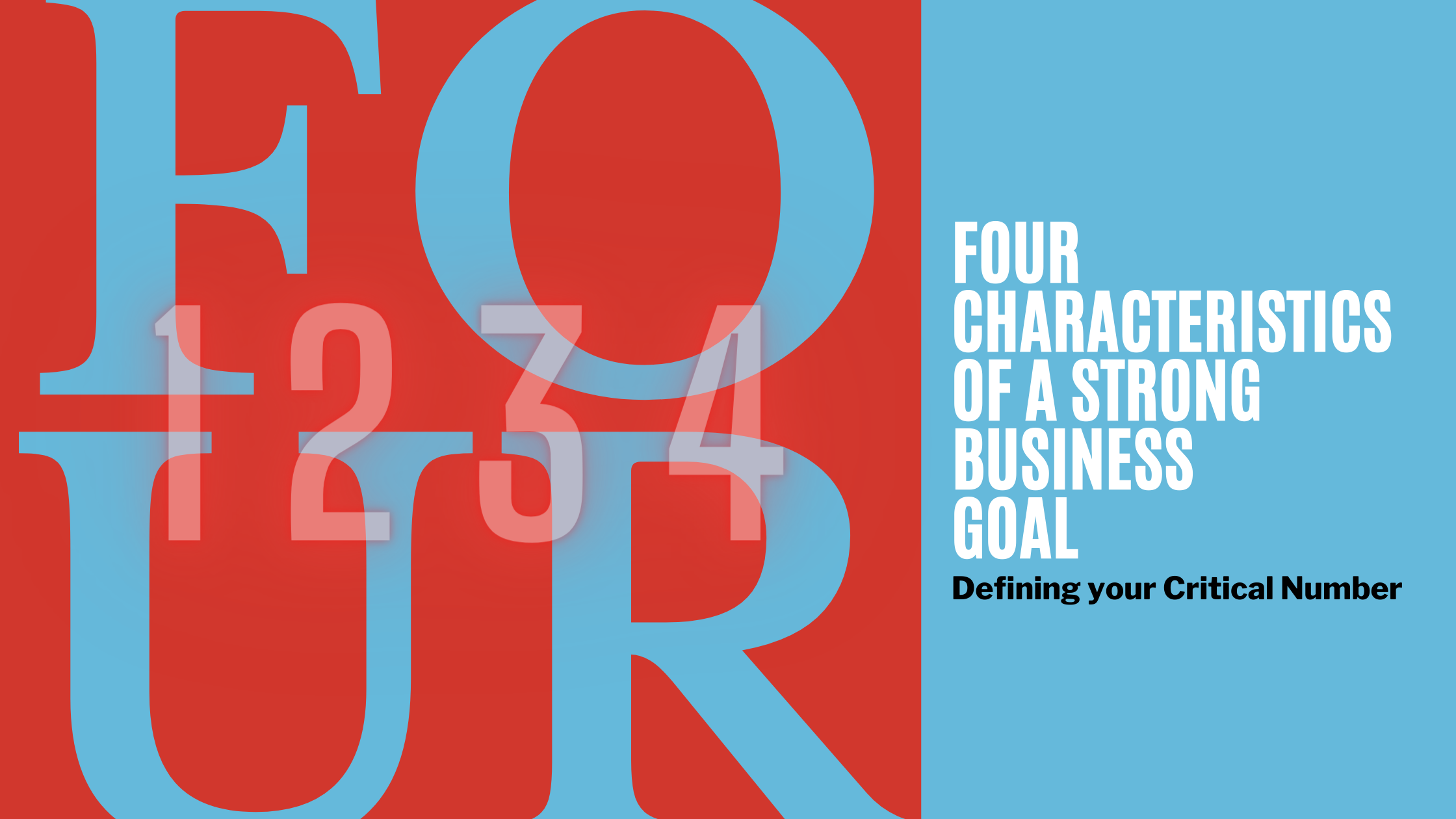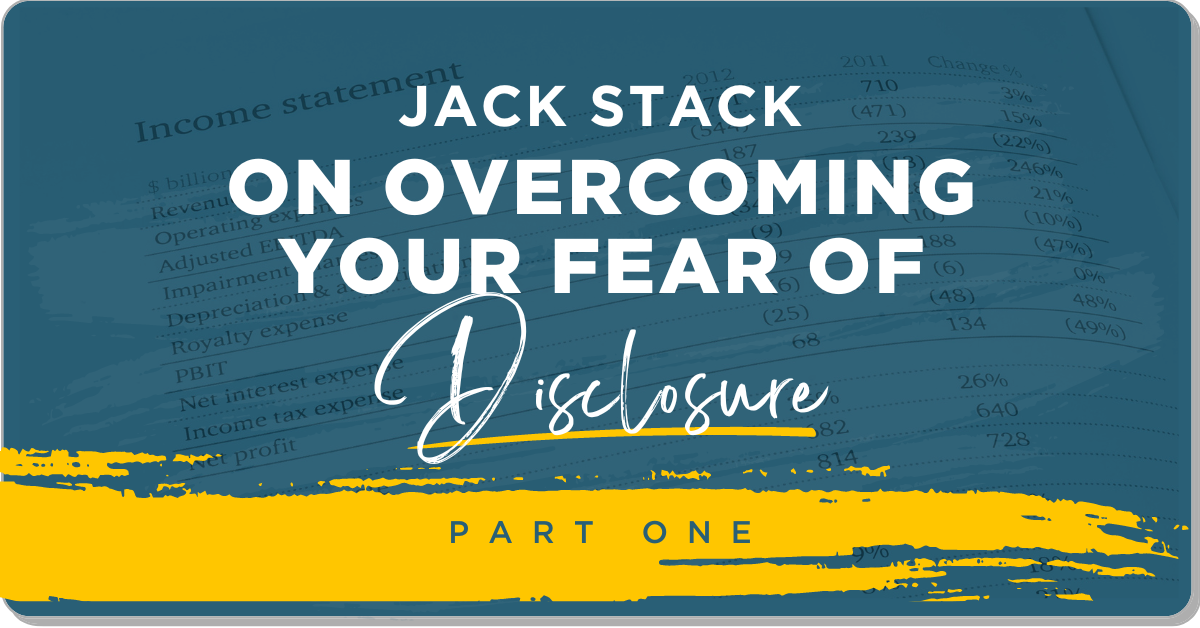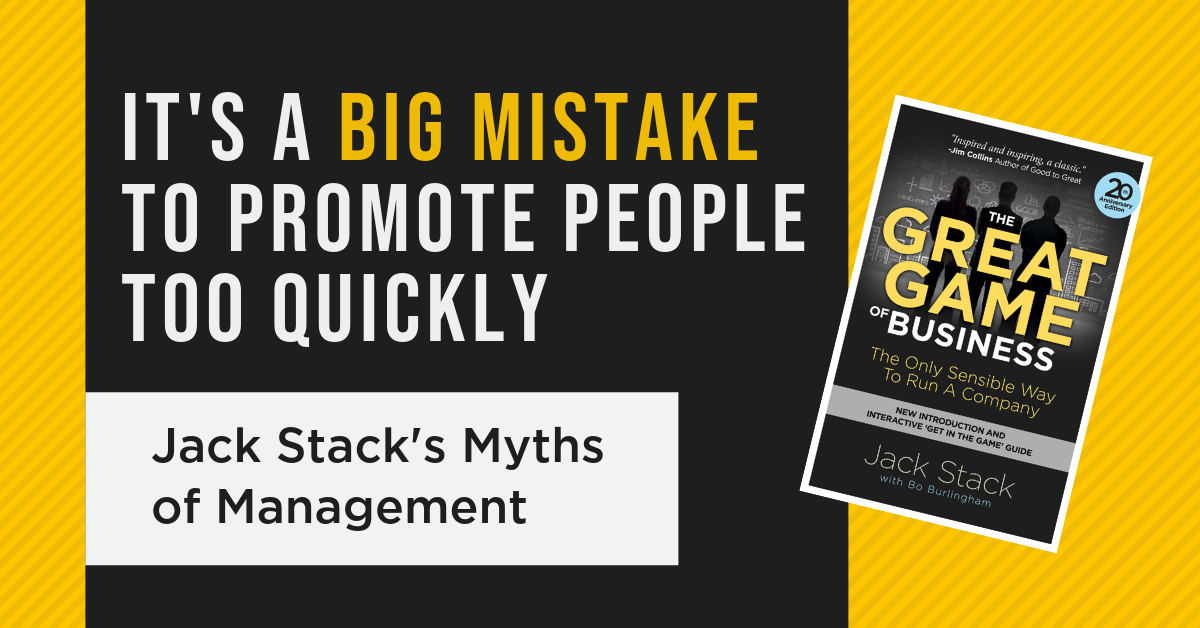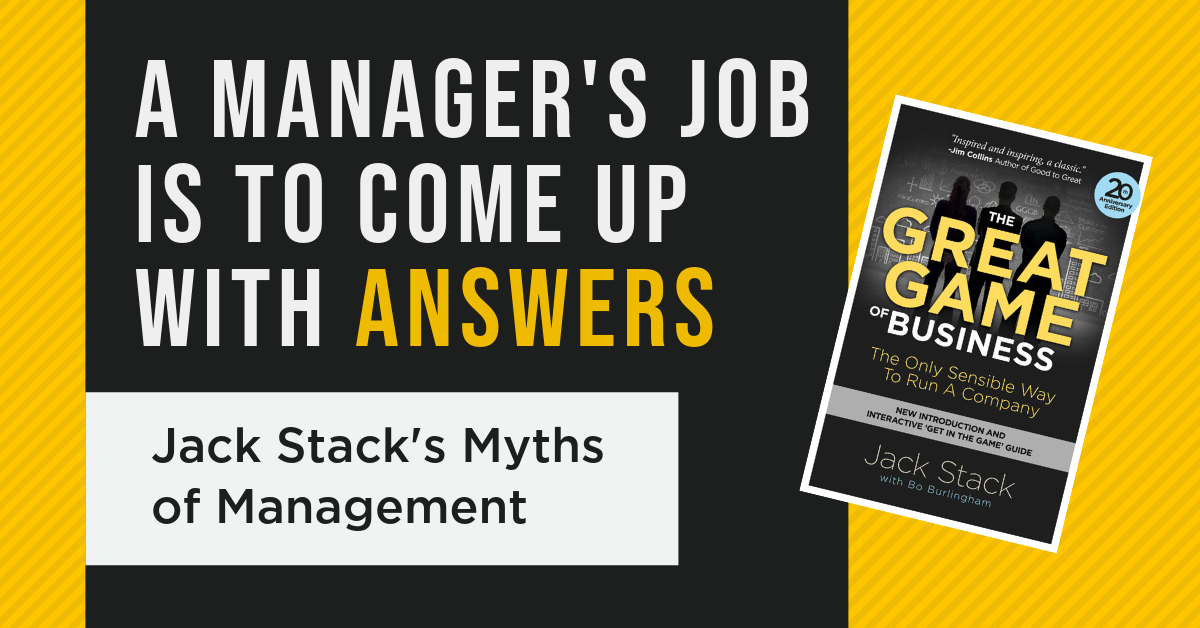As a business owner, you know it is important to take the time to assess your strengths, weaknesses, opportunities, and threats (SWOT) to your business in order to set goals and priorities for the upcoming fiscal year. But, how do you know which one thing is the top priority to fix? At Great Game™, we talk a lot about the Critical Number™. By definition, the Critical Number is the operational or financial number that represents a weakness or vulnerability that – if not addressed and corrected – will negatively impact the overall performance and long-term security of the business. Overall, the Critical Number is the heart of The Great Game of Business®. Each of our three fundamental processes (Know & Teach the Rules, Follow the Action & Keep Score and Provide a Stake in the Outcome®) revolves around educating, involving and engaging employees to improve the Critical Number.
Read More
Excerpted from The Great Game of Business. How do you get to the point where you can even think about democratizing the workplace—about being a transparent business that gives people access to the numbers and, in addition to that, the means to control their destiny? Not by swallowing your pride and admitting that you don't have all the answers and can't make all the decisions. No, it's by swallowing your fear.
Read More
This is an employee engagement message from the heart. I’m doing my best to strip away HR-speak, academic jargon, and journalistic style in an attempt to actually reach crazy-busy front-line managers who’ve heard it all before. It’s my vain attempt to actually influence someone. Despite the best intentions of so many, the truth about employee engagement isn’t getting out. You need to understand…
Read More
Excerpted from The Great Game of Business. Like most American companies, International Harvester operated on the principle that everybody should focus on doing the specific job he or she was assigned. The corollary was that you should only give people the information required to do their specific jobs; everything else should be treated as some kind of corporate secret. Somehow it had become common wisdom that this was a good way to run a business—in fact, the only right way to run a business. That is the biggest myth of all.
Read More
From characteristics of successful GGOB practitioners, to forecasting tips, to biggest mistakes and how to avoid them, our Great Game™ coaches tackle these common issues in this segment of "Ask the Coaches."
Read More
Company culture is one of the most important values individuals look at when searching for a job. That's why Great Game practitioners often spread the word about their open-book and transparent business practices, and as a result not only draw in prospective talent, but attract the right employees with compatible values—those that will thrive in their Great Game culture. GGOB practitioners showcase their unique culture to tell their customers and staff—new and old—the story of what they're all about. Many companies capitalize on their practice of the Great Game of Business® in job postings and their organization's web pages as hiring tool, an asset to retain current employees, and way to communicate their organization's values to clients.
Read More
Excerpted from The Great Game of Business. The common wisdom is that people should prove themselves before they get promoted. I always promoted people as fast as I could. Sometimes I promoted them right out of my department. I liked giving people opportunities, and I didn't want them to get bored and stale, but I had an ulterior motive as well: it made my job a lot easier to have friends all over the company.
Read More
Excerpted from The Great Game of Business. It's very common for managers, especially new managers, to think they're supposed to have solutions for any problems that arise on their watch. That kind of thinking can get you into deep trouble. For one thing, it sets you up to fail because no one has all the answers. For another, it undermines your credibility because everyone knows that no one has all the answers. It also isolates you from people. A big pitfall of managers at all levels is the notion they have to be perfect. I know supervisors who can't hold a meeting because they're afraid someone might ask a question they can't answer. As I mentioned earlier, I know CEOs who can't leave their offices unless their ties are straight and every hair is in place. Managers like that wind up hating their jobs. They feel they have to live up to an image, to be an idol, to be a representative of a position.
Read More
A workplace Huddle is more than just a staff meeting. Discussing the financials and critical elements of your business is a vital part of the Great Game of Business®, but more importantly, the Huddle is an opportunity to focus on the people responsible for those numbers and the story behind the numbers. In the Huddle Cycle, numbers are forecast and shared in a series of meetings from daily departmental check-ins to weekly company-wide gatherings, driving employee engagement and serving as a self-correcting measure to keep the company on the path toward achieving its goals. To better understand what's involved in creating a Huddle rhythm, let's break down the three main types of workplace Huddles: the Pre-Huddle, the Management Huddle, and Company-Wide Huddle.
Read More
The Great Game of Business® is not for everyone. It's for business leaders looking for true transformation—those who fantasize about a business life in which others share the burdens often reserved for owners and executive staff. It's for those who view prosperity as a journey, not just an outcome. It's for leaders prepared to learn, teach, and share in The Game.
Read More

.png)



.png)
.png)

.png)








.png)




-5.png)
.png)
